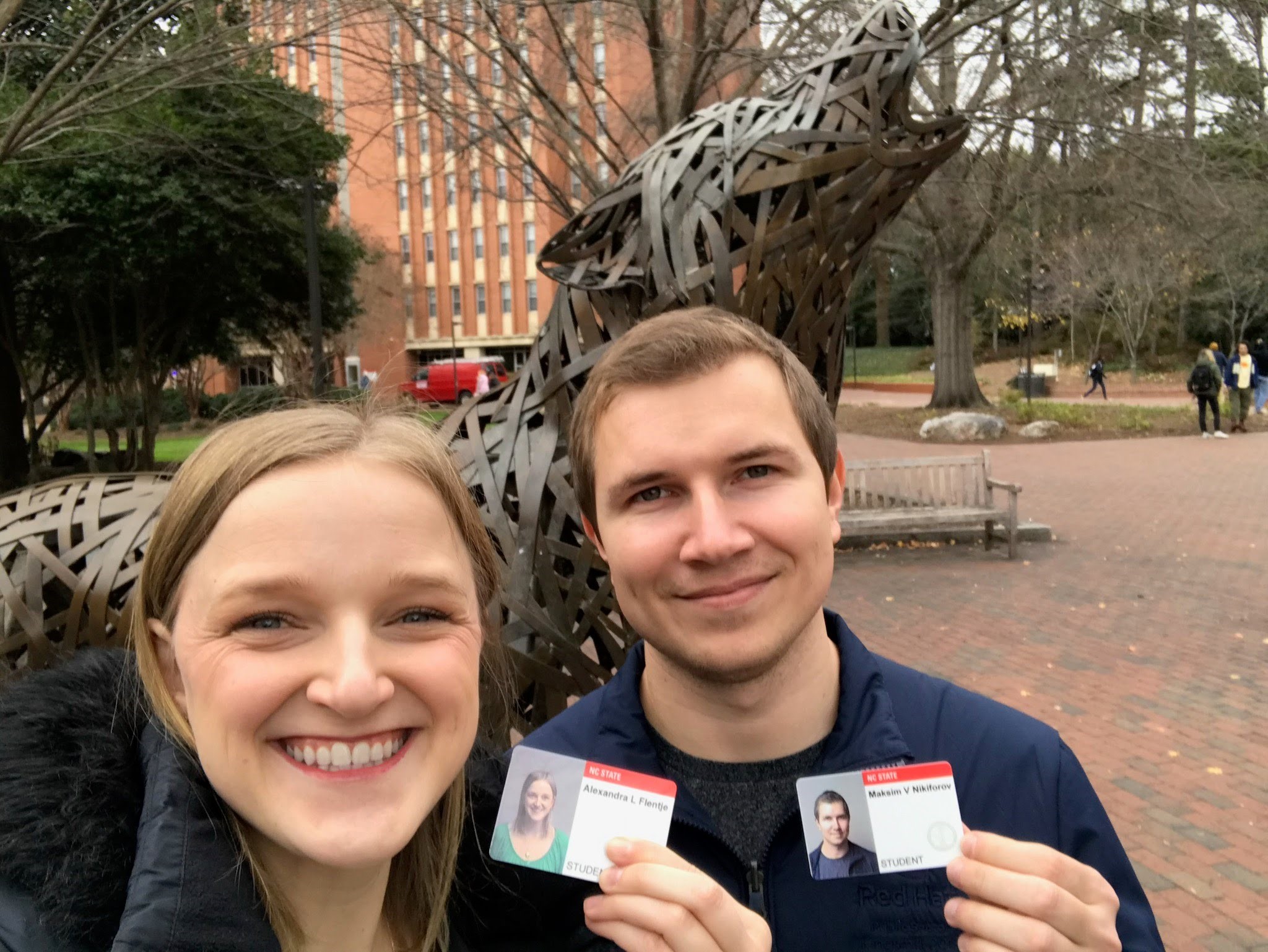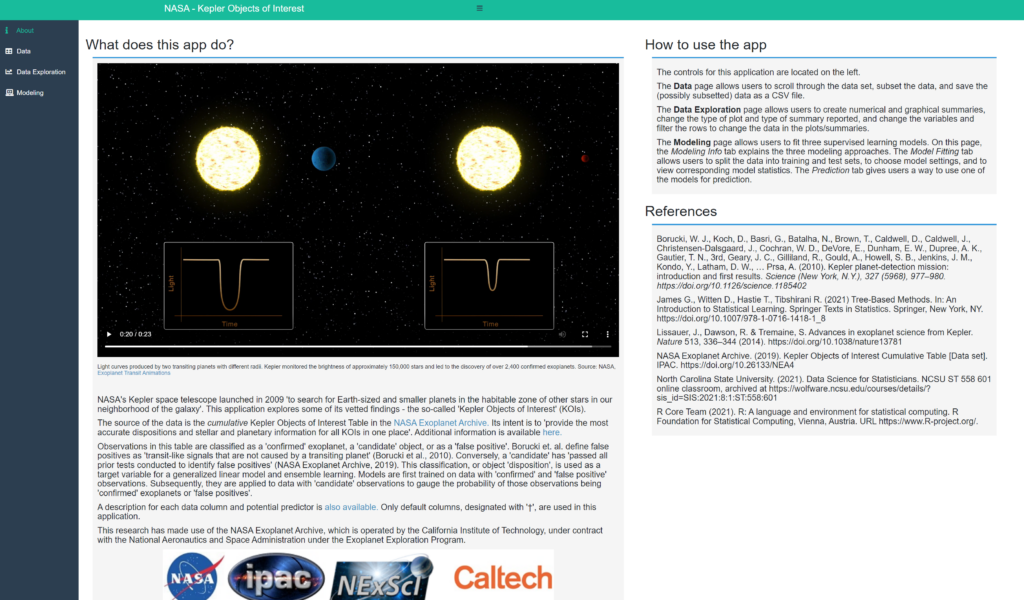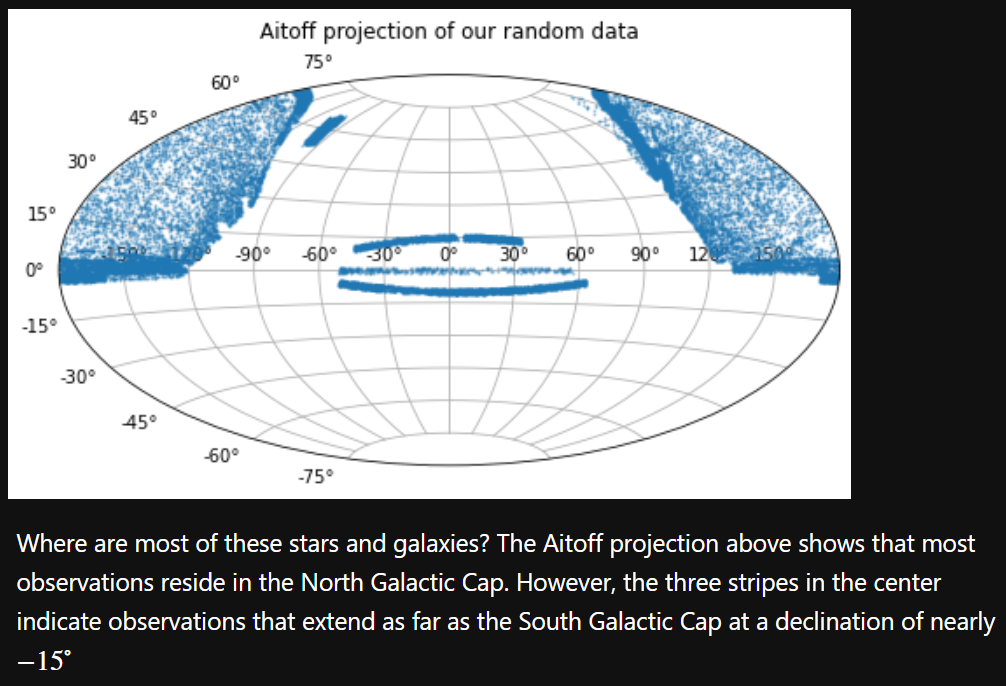Learning Industry-Prevalent Tools in Statistics and Data Science
Maksim Nikiforov leverages NC State's graduate certificate in Applied Statistics and Data Management to boost his career.

Maksim Nikiforov was looking for a way to formalize his data science education, boost his resume, and increase his workplace productivity. He found what he was looking for in the Graduate Certificate in Applied Statistics and Data Management at NC State.
“At my previous employer, I began working extensively with public clouds, Docker, and Kubernetes. The topic of data analytics ‘at scale’ pervaded my discussions. I learned that ‘data engineering’ and ‘data science’ were thriving disciplines, and I was captivated by their blend of palatable mathematics, computing, and wide-ranging applicability.”
This led him to consider different online programs that would allow him to continue traveling for work and still complete coursework in the evenings and on weekends. Maksim had no formal training in statistics or modeling data so he looked for a curriculum that taught core statistical concepts, incorporated supervised (machine) learning, and exposed students to modern statistical computing practices and languages such as R, python and SAS.
He also assessed the cost, flexibility, and quality of the academic department. With NC State’s department of statistics being consistently lauded as one of the best values in higher education and its statistics program well-ranked globally, the certificate program at North Carolina State University was, in his words, a ‘no-brainer.’
“The four courses in the certificate program enabled data science newcomers like me to ascertain our passion for the subject without an extended commitment. The availability of Python, R, and SAS-based classes added breadth to the curriculum, and I appreciated the flexibility to satisfy the statistical programming requirement with any two-course combination.”
The coursework of the certificate included the use of industry-prevalent tools such as version control systems, notebook environments, and open-source libraries. Many of the class projects are open-ended, which permitted Maksim to explore and model data in a domain that interested him the most.

“I had a blast creating an R-based interactive web application to classify candidates in the NASA Exoplanet Archive, and I developed a fondness for Spark while working with data from the Sloan Digital Sky Survey. Dr. Post and the rest of the faculty were incredibly knowledgeable, insightful, and supportive, and they made themselves readily available in discussion forums, flexible office hours, and optional (but highly effective) problem-solving sessions.”

In the end the knowledge Maksim gained from the certificate helped him transition into a technical pre-sales roles in data and artificial intelligence at Microsoft and, most recently, at Databricks.
“I have the fortune to work with large enterprises and help them develop technical strategies for big data analytics and AI, and I attribute these opportunities to the curriculum, faculty, and staff at NC State.”
“The certificate curriculum exposed me to Python, R, SAS, Apache Spark, machine learning, and a variety of productivity tools and prepared me to communicate and work with data analysts, data engineers, and machine learning experts in the industry. In large organizations, these practitioners are often siloed, and attaining an integrative awareness of their responsibilities through the certificate program has been a life-changing experience.”
Maksim recommends the certificate program to others due to its breadth and high quality of education, the flexibility of distance learning, and the value of NC State. He also enjoyed that the department regularly organized in-person and virtual meetups to help students connect and provided periodic newsletters to convey useful updates about resources and opportunities in the department.
Are you interested in working with data and advancing your career? Explore the Graduate Certificate in Applied Statistics and Data Management.
- Categories: